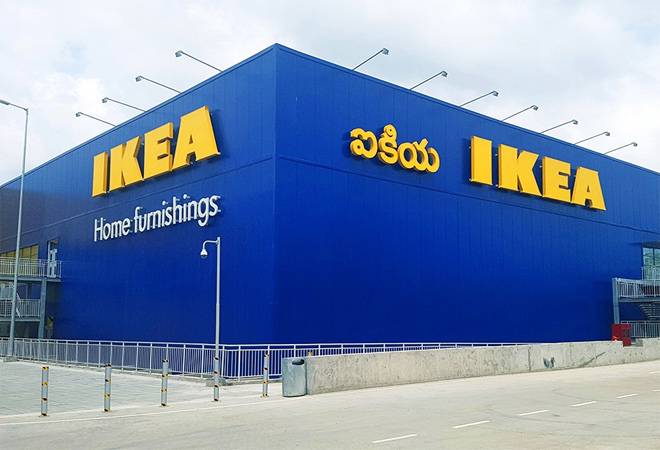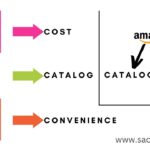First Store of IKEA in India
In 2018 there was a massive traffic jam in the city of Hyderabad. Traffic jam is not new to a city like Hyderabad, but the reason why this traffic jam happened is very amusing. It was not because of an accident. It was not because the truck had broken down. It was merely because of the opening of a furniture store. You heard that right a furniture store had opened up in Hyderabad. This resulted in such a massive traffic jam, that a person who would usually take just 20 minutes to go from office to home took about more than 4 hours just because of this traffic jam. It almost appeared as if the entire city had taken a break just to visit this furniture store. The Hyderabad police were putting out traffic advisories. Radio jockeys were advising against venturing near the area, and the entire city was in a frenzy. The furniture store itself had put out a billboard saying that “Hyderabad we are here to Stay”
Q: What kind of furniture store is this and what is so special about this furniture store that it could bring a mega city like Hyderabad to a standstill
About IKEA furniture
This brand is none other than the world’s largest furniture seller. Who goes by the name IKEA? For those of you who do not know about IKEA. IKEA is a Swedish furniture company and it is so huge that IKEA has about 445 stores worldwide. Not just that, IKEA has more than about 2.17 lakh workers and generates a revenue of more than 40 billion dollars. No matter which city an IKEA store opens up in. No matter which country an IKEA store opens up in. the entire population of that city falls head over heels just to visit this store. If you look at the top 10 furniture brands all across the world. You will see that IKEA is at the top with a revenue of 40 billion dollars. The second competitor to IKEA is not even close to 10 billion dollars.
The question is what is so special about IKEA that people are so crazy about it? What is so special about IKEA is that it has been able to build a 40 billion empire merely by selling furniture. What is the IKEA Business Strategies?
Secret Marketing Strategies of IKEA
The answer to this question lies in one of the most beautiful case studies that were done by Harvard Business Review,(PDF) Which dates back to the 1950s. In the 1950s in American culture mothers used to bake the cake for their kids and they used to consider it to be a gesture of love and devotion to their family. Back then cake making process in itself was very tedious and sometimes it used to take more than a day for a woman to bake a cake. So there was a company called “General Mills”. Which came out with the idea of actually minimizing the effort that mothers were putting into baking a cake. They came out with the idea of something called instant cake mix. Wherein they said that we are going to give you all the ingredients in a packet and all you have to do is just add water to these ingredients, Put it in the oven and within a few hours, your cake will be ready. This product minimizes the efforts of the mothers to such a large extent, that a process that would usually take more than a day sometimes would be done in less than half a day. Theoretically, if you see, on paper this looks like one of the best products a mother could ask for. Why? Because it minimized the effort, It minimized the time to a large extent, and most importantly the cakes almost always used come out very delicious.
But this product failed miserably in the market. The question is what could be a more perfect product than a product that can save a ton of time that can reduce efforts and can give out amazing results?
Human Psychology of IKEA Customers
Well this is the same question that the “General Mills” guys also asked. So they hired a few psychologists and got them to find out what exactly was wrong with the product. As it turns out there was nothing bad with the product. The only problem was that mothers considered the cake mix to be an insult to their efforts. Somehow they came to believe that merely by using the cake mix they were kind of deceiving their husbands and their children. If you see this principle is not very far from home. I mean if your mother is a specialist in making “Chhole Bhature” and she puts in an entire day’s effort just to make delicious “Chhole Bhature” for your family, and you go and tell her that here’s an instant “Chhole Bhature” mix when you just have to add water and you’ll be able to make delicious “Chhole Bhature”. Will she accept that? The only reason why she wouldn’t accept it is that it is taking away the sanctity of her efforts that is associated with the entire process of making a signature dish which is, “Chhole Bhature”. Just like this the mothers of the united states often felt it to be like an insult to their efforts, an insult to the sanctity that they have associated with the efforts of making cakes.
You know what the general mill’s guys did? They came out with another product. In this product instead of making it much easier for mothers to bake cakes, they came out with a few hurdles. Wherein mothers had to add eggs and a few more ingredients which made the process more tedious, which could give the mothers a perception that they were putting in a lot of effort to bake the cake. As it turns out this product became a massive hit and sales skyrocketed.
That is when the psychologist of general mills understood a very important lesson in human psychology and that is “No matter how inefficient the system is, No matter how tedious the work is, No matter how bad the product is if a person has put in efforts to bring about that kind of output that person will have an extraordinary sense of value towards that product. For the rest of us, it might look like a stupid product but for that person, that product will be of extraordinary value, and that is how they concluded that “labor leads to love”. This is exactly the phenomenon that IKEA applied to its furniture. Because of this today, IKEA is a 40 billion dollar company. If you look at the supply chain of any furniture company what they do is the furniture first gets manufactured then the furniture gets shipped to the retailer. Over there the retailer stores it in the warehouse and then when you go there to the showroom and you like one of those pieces of furniture the retailer then ships the furniture to your house. Now, this furniture comes directly assembled from the manufacturing hub to the retailer’s warehouse and from the retailer’s warehouse to your house as a result of which it comes in a large truck.
But you know what guys IKEA furniture was packed in such a way that it could fit in your car. The question is how the hell is that even possible? Well while a conventional sofa comes with something like this 
IKEA furniture looks something like this IKEA furniture does not come assembled they come in pieces and you have to assemble the furniture in your own house here’s where the concept of DIY (Do It Yourself) comes into play. As it turns out just like mothers develop this extraordinary sense of value towards their work of actually baking a cake. Customers started to develop a very beautiful relationship and an extraordinary sense of value towards their IKEA furniture. Because they assembled furniture by themselves.
IKEA furniture does not come assembled they come in pieces and you have to assemble the furniture in your own house here’s where the concept of DIY (Do It Yourself) comes into play. As it turns out just like mothers develop this extraordinary sense of value towards their work of actually baking a cake. Customers started to develop a very beautiful relationship and an extraordinary sense of value towards their IKEA furniture. Because they assembled furniture by themselves.
This is just the tip of the iceberg what it did to the supply chain of IKEA was revolutionary. Because when it comes to logistics one of the most important factors that result in cost-cutting and efficiency is the volume occupancy, as in, if you’re fitting something into a truck, you have to make sure that the entire volume of the truck storage is filled. If you see practically you can’t fit beyond one sofa in a mini truck. You can stack one sofa on top of the other because that would destroy the sofa at the bottom. As a result of which the volume occupancy of the trucks becomes very less. And here’s where IKEA’s revolutionary idea comes into play.
Because IKEA furniture did not come assembled it came in a box and you could stack one box on top of the other. As a result of which the volume occupancy of the truck was maximized. In one mini truck wherein you could ship only one sofa when it’s an IKEA sofa you could practically ship more than three to four sofas. That is how the entire supply chain of shipping so far became super duper efficient. And it doesn’t stop over here if you look at the warehouse of the retailers if the sofas come assembled again the retailer cannot stack one sofa on top of the other. But when it comes to IKEA storage IKEA storage looks something like this. Wherein you’ve got multiple stories of storage one on top of the other.
To put a cherry on the cake these boxes could also fit in a car as a result of which customers could practically take their furniture home in their car. That is how the supply chain was turned so efficient and the cost was reduced to such a large extent that IKEA was able to provide premium furniture at a very low cost. And that is how IKEA was able to find its golden recipe of providing low-price high-value products. As in products that could be extremely affordable by the customers and yet could create an extraordinary sense of value for their customers. This is the reason why IKEA today is a 40 billion dollar company and is operating in more than 25 countries.
Q: What can ordinary people like you and me learn from this extraordinary case study and more importantly how can you apply the IKEA effect to your startup so that your customers will develop an extraordinary sense of value for your products?
Business Lessons from this Case Study
As far as the application of the IKEA effect is concerned there are three major things that you need to keep in mind.
- The task that you’re giving to your customers shouldn’t be too easy
- Your customers should have to put in a certain degree of effort to complete that task
- You got to make sure that the task has been designed in such a way that it can be completed by the customers
Apart from this, there are also some extraordinary business lessons that you need to learn if you want to build an extraordinary brand. The first thing that we all need to realize is that the perceived value of a product is always directly proportional to the engagement of the customers. No matter what kind of brand you are if you can engage with your customers that will help you create an extraordinary sense of brand value in the mind of the customers. This sense of brand value could be the deciding factor in deciding whether your company is an ordinary company or an extraordinary company.
For further reading I would highly recommend you to read this book called Hooked written by Nir Enyal (Free PDF) You could also understand how people often associate their feelings with price and cost from this book called misbehaving. Which has been written by a Nobel laureate named Richard shallow.
If you learned something valuable please write in the comment. Do you Know How Rapido is Beating OLA & UBER? Click here




Pingback: Maggi Case Study | How Maggie Becomes Monopoly in Noodles Market - SachinThakur.in
No matter what is the work if the man will not find himself as valuable the he will leave that. Therefore we should not decrease more effort to any work.